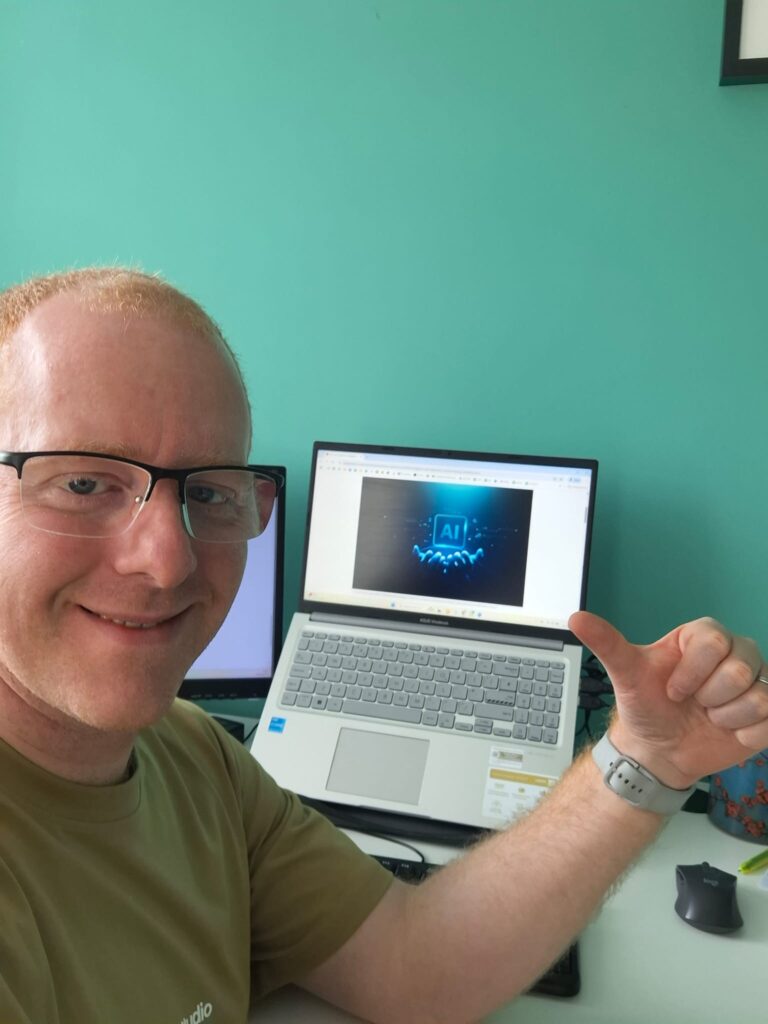
This isn’t a rant about how terrible AI is. Absolutely not. In fact, I’m a massive fan.
I use AI daily. I barely “Google” anything anymore; I “Gemini” it.
And I wholeheartedly, unashamedly use it in my work with clients.
When AI is used properly, it actually makes me better at what I do, and it means my clients get a better experience.
So, what’s my “AI rant” actually about then?
It’s about how we misuse AI.
AI works best when you feed it the right information and give it clear instructions. If you don’t, you risk losing the essential human touch.
You end up blindly accepting whatever it spits out.
Let me tell you a story about how I learned this for myself.
Back in a previous role, I was the training lead for my business unit’s Career Coach network.
My big idea was to gather feedback on our career coaches to pinpoint any training gaps.
I diligently put together a whole process and a presentation to sell it to the leadership team.
Then, AI started to really come into its own, and I was challenging myself to think about how I could use it.
So, I asked it to draft a communication to help me position my process and presentation to the leadership team.
I was genuinely amazed! The communication was perfect, significantly better than anything I could have written myself.
Feeling rather smug, I copied, pasted, attached, and hit send. I was chuffed that I’d saved myself a good twenty minutes of writing.
Then the replies started to trickle in. And let’s just say, it didn’t land as I’d expected.
“Great idea, Tony,” one said. “But I’m a little confused. What you’ve outlined in your communication doesn’t quite match the deck or the process. Could you take another look and clarify?”
I was absolutely mortified. It hadn’t even crossed my mind that the communication and the actual content wouldn’t be in sync!
From that moment on, I started to think very carefully about how I used AI.
So, What Am I Seeing in Job Applications These Days?
CVs That Scream AI
If you simply feed your CV into an AI tool and tell it to “tailor this to the job description” without giving it any more specific guidance, you’re at risk of stripping away what makes you, well, you.
It’ll rewrite things entirely. You’ll read it and think it looks fantastic. But the recruiter, who’s likely seen “results-oriented dynamic professional” for the eight hundredth time that day, will start to question what’s genuinely you and what the AI has decided to say about you.
(Honestly, I might scream if I see that sentence in a CV one more time!!)
So, instead of asking AI to write your CV for you, ask it for feedback on what you can do to tailor it to match the job description. Then, you, the human, can interpret that feedback and apply it to your CV.
Interview Answers That Lose the Human Touch
When I’m running mock interviews with candidates, the difference between their “scripted” answers and when I ask them something they haven’t prepared for is frankly startling.
Many have used AI to write a script and then learned it, almost word for word. It simply doesn’t sound human. It’s incredibly generic, and the real person only emerges when I ask something they haven’t prepared for.
You’ve got to remember that the interviewer wants to get to know you during an interview, as well as what you’re capable of. How can they do that if you’re effectively teaching them what an AI thinks you are?
So, instead of asking AI to rewrite your interview answers for you, ask it for feedback on your existing answer. Again, you can then interpret that feedback and apply it in your own unique way.
My Simple Advice?
Please, do use AI. The world is changing quickly, and you don’t want to fall behind.
But use it wisely. Treat it as a thinking partner, not just something that does everything for you. Trust me, you’ll see a significant difference.
Feeling a bit unsure about how to truly leverage AI in your job applications without losing your unique edge? Come to me, and let me show you what I mean.
